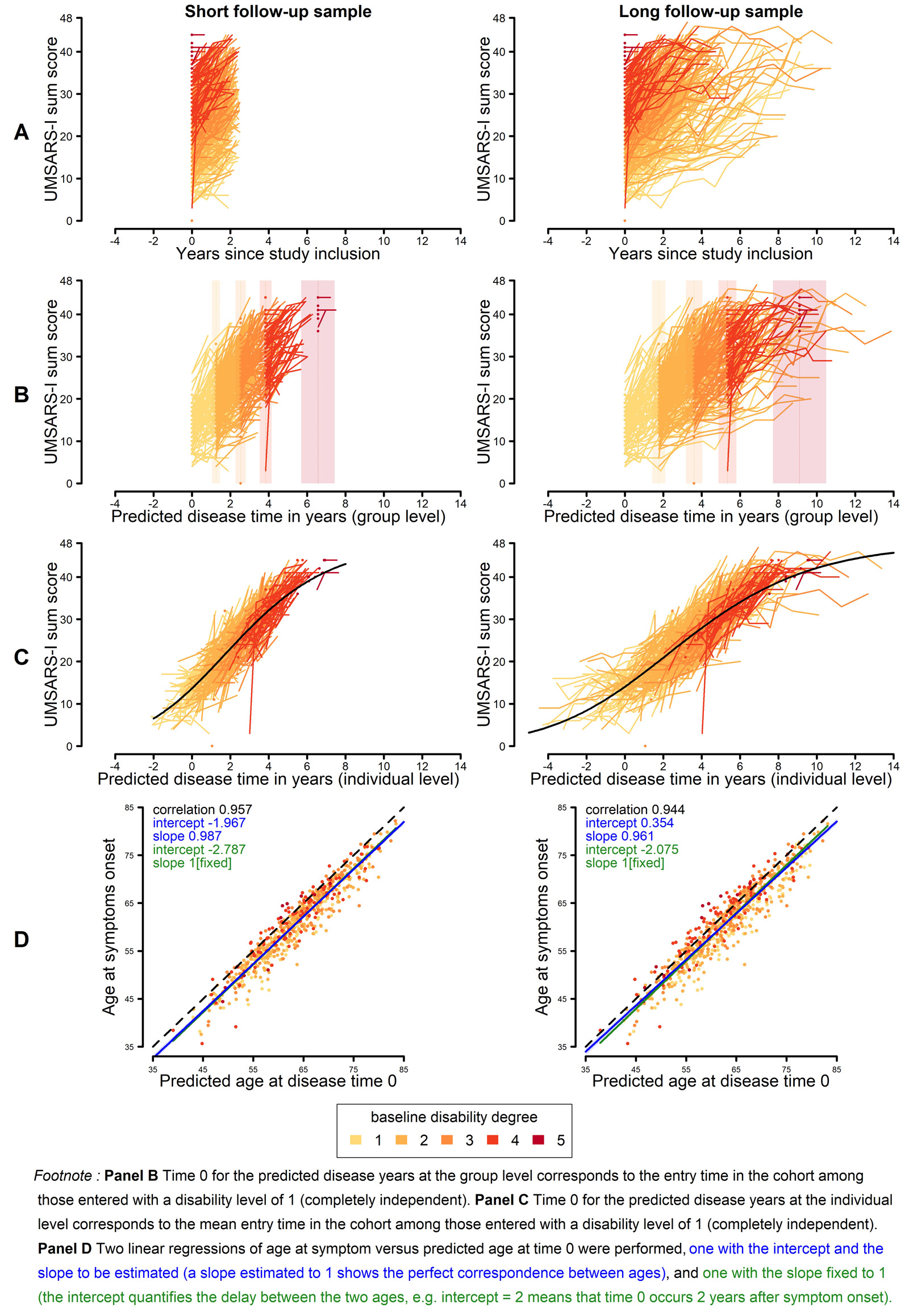Category: Parkinsonism, Atypical: MSA
Objective: To describe MSA progression according to the latent disease continuum and assess the value of long-term follow-up.
Background: Although essential for therapeutic development, describing and understanding the natural history of multiple system atrophy (MSA) remains challenging due to disease rarity, diagnostic delay, and heterogeneity of progression.
Method: Longitudinal data from 663 patients of the French MSA cohort were analyzed with a disease progression model recalibrating each patient’s disease time according to the global disability at study entry. MSA progression was described by the Unified MSA Rating Scale parts I (activities of daily living) and II (motor examination) according to a follow-up of 2.5 versus 10.8 years.
Results: MSA progression spans a larger period when accounting for long-term data. This suggests that studies restricted to short-term follow-up overestimate the progression rate and underestimate inter-patient differences.
Conclusion: Long-term individual data are essential to describe disease progression and prevent too pessimistic projections.
To cite this abstract in AMA style:
T. Saulnier, M. Fabbri, A. Pavy-Le Traon, M. Le Goff, C. Helmer, P. Péran, WG. Meissner, O. Rascol, C. Proust-Lima, A. Foubert-Samier. Disease progression in multiple system atrophy: the value of clinical cohorts with long follow-up [abstract]. Mov Disord. 2023; 38 (suppl 1). https://www.mdsabstracts.org/abstract/disease-progression-in-multiple-system-atrophy-the-value-of-clinical-cohorts-with-long-follow-up/. Accessed February 27, 2026.« Back to 2023 International Congress
MDS Abstracts - https://www.mdsabstracts.org/abstract/disease-progression-in-multiple-system-atrophy-the-value-of-clinical-cohorts-with-long-follow-up/

